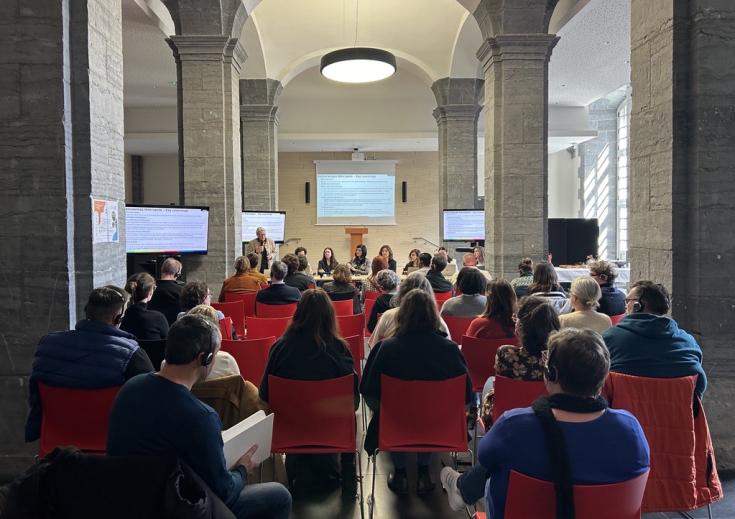Promoting gender inclusive urban planning policies in Valenciennes Métropole

Valenciennes Métropole stands out as a pioneer in urban transformation policies, backed by a robust political commitment and support for collaborative agendas driving transformative urban projects. This dedication extends to the exploration of innovative gender mainstreaming urban strategies. Notably, gender mainstreaming has ascended on the political agenda, marked by the endorsement of the European Charter for Equality of Women and Men in Local Life (2019), the establishment of a dedicated gender equality delegation within the Community Council (2020), and the formulation of both the 1st (2021-2023) and 2nd (2024-2026) gender action plans.
Have a look at the European Charter for Equality of Women and Men in Local Life.
Peers from across Europe
In collaboration with Astrid Severin and Arnault Morisson from the Policy Learning Platform, six accomplished peers participated in the review:
- Julia Girardi-Hoog, City of Vienna, Austria.
- Melina Bergström, RISE - Research Institutes of Sweden, Sweden.
- Rebecca Eliasson, Region Kronoberg, Sweden.
- María Dolores Ruiz Sánchez, Diputación Provincial de Jaén, Andalucía, Spain.
- Silvia Visciano, Puglia Region, Puglia, Italy.
- Simona Lembi, Metropolitan City of Bologna, Italy.
These peers shared their experiences and provided tailored policy recommendations to address the challenges faced by Valenciennes Métropole. Their insights, know-how, and practical suggestions were invaluable for solving the presented challenges.
Some Recommendations
- Benchmark different Manuals for Gender Mainstreaming (short-term) to get inspired and select what is important (e.g. Vienna, Kronoberg, Bologna, The Yes Way). Create your own gender mainstream manual (long-term goal) for urban planners (collaborate with innovation stakeholders, artists, clusters, experts, research, universities, state-services (DDTM), companies, research institutes, urbanists, architects…).
- Pilot new urban spaces through temporary spaces (see Interreg Europe IMPETUS on temporary uses). Temporary uses can be key to experiment approaches to gender mainstreaming. They provide an opportunity to embrace flexibility, experiment with various functions, and engage with the community before determining the most suitable permanent uses. Pilot to learn-by-doing instead of gender mainstreaming everything at the same time and use it as “best practice” and use it for finding the right requirements and specifications.
Read more about these and other recommendations in the follow-up report.
Peer review_final report_Valenciennes Métropole.pdf

Peer review publication
Find more information on the methodology and experiences of previous beneficiaries in our publication.

Apply for a peer review
Start your peer review application process today and find solutions to your policy challenge with our expert and peers!
